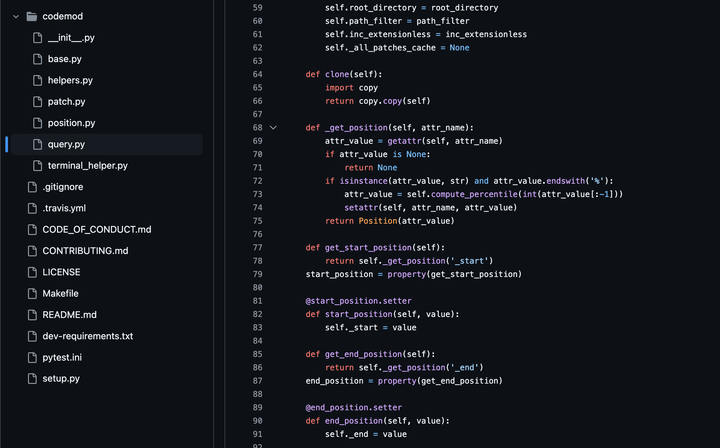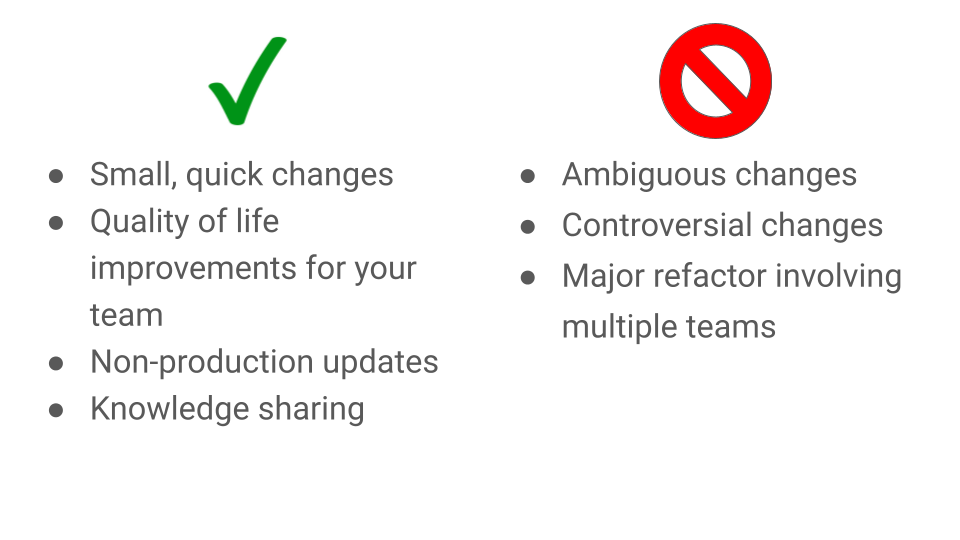How to Have Remote 1:1s

As a Software Engineer for 7 years, I have joined new teams 5 different times. In that process, I learned the importance of talking to my new teammates in the critical 2 weeks of joining a team. As the new person, you can get away with asking many questions. I am referring to discussing company specific questions, not questions that you can easily Google or search up.
How to set up 1 on 1s with your new teammates
- Notify your teammates ahead of time that you want to have a 30 minute 1 on 1 meeting with them. This can be in your daily stand up or sent as a direct message. 30 minutes is short enough to respect their time.
- Once you get a confirmation from your teammates
- Create the meeting invite with the title below:
- <other person's name> and <your name> 1 on 1
- In the email message body, include what the meeting will be about (copy and paste the below)
- Create the meeting invite with the title below:
- Get to know each other
- Talk about their experience working with the team or company
- Ask them to tell you everything they think you should know
- The biggest challenges the team is facing right now
- Who else you should talk to
Here is a great article from Andrew Bosworth on what to discuss with your new teammates. Below is what I learned from asking each of those questions.

Question 1: Tell me everything you think I should know
You will learn about your team member's daily priorities, tasks, and responsibilities. This will allow you to understand the team’s expectations. You will learn what tasks to prioritize and also low-priority or irrelevant tasks. This also leads you to learn the scope of the project.
You will also get to know each of your teammate's roles and what their responsibilities are. This will give you an idea of who to go to for help and what questions to ask them.
Question 2: What are the biggest challenges the team has right now?
You may also realize that everyone on your team faces the same problems repeatedly. Everyone cares about their work. Sometimes, the blockers or challenges we face discourage us from doing our best work. Doing these 1 on 1s early on can give you an idea of where you can contribute right away. Focus on a small task that can help your team move forward.
For example, the README for all of the repositories lacks documentation on how to run the app locally or the documentation is outdated. If your team members are busy, this can be an opportunity to find ways to update the documentation or add changes to it so that it will serve your team.
Question 3: Who else should I talk to?
The answer to this question will lead you to know the important people you should talk to. When you finally meet with the person everyone mentioned, you will gain a deeper insight into the project scope. Then, you can use this opportunity to ask questions about the project and understand your role better.
Depending on who you are talking to, here are some example questions you can ask them:
- What kind of users are we serving?
- How many users are we serving?
- What is the impact of the product we are working on?
- How does the CI/CD pipeline work?
- What is the process of deploying to prod?

Having 1 on 1s with your new teammates is helpful because you'll learn about their personalities and communication styles, as well as the team's culture and environment.
It's easy to judge someone's performance based on their work, but it's even more meaningful to understand what challenges they're going through. That way, you don't jump to conclusions about their performance and help them with a problem they're facing.
People want to feel heard. Giving people a chance to share what they know is a way of them helping you. It also gives them and yourself a space to talk more than work related topics, especially in a remote setting.
I hope you found this helpful. I am not sponsored by Taro and if you need help with Onboarding, I highly suggest taking Rahul Pandey’s The Complete Onboarding Guide For Software Engineers course.
Connect or follow Johne Vang on LinkedIn or follow on Twitter for more content like this.




Comments ()